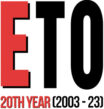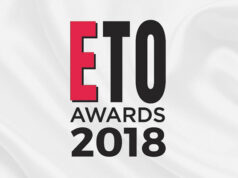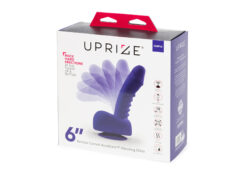Following Jacqui Smith’s Porn Again documentary for BBC Radio 5 Live, broadcast on March 3rd, Jerry Barnett has gone on the attack on behalf of the adult entertainment industry, as well as a licence-fee payer. Barnett, MD of VOD company StrictlyBroadband.com and chairman of AITA – the Adult Industry Trade Association – spoke to The Register.co.uk on the 8th of March. He said: “The documentary appears to have been a piece of pro-censorship propaganda, backed by the full establishment weight of the BBC, at a time when freedom of speech is under concerted attack from multiple directions, by our government and many others around the world. Smith also put her weight behind Ed Vaizey’s current proposal that Internet connections should be delivered with porn access switched off by default, although adequate filtering capabilities already exist for any parent who is concerned about what their children watch.”
Barnett continued: “It seems that adding support to Vaizey was part of her agenda for the programme. This capability would be the government’s first major step into censoring the British Internet, and is of huge concern to me from a civil liberties perspective rather than just from the industry’s point-of-view.”
Other voices have been added to the debate, from both within the adult industry and beyond it. Many feel the documentary, fronted by former Home Secretary Jacqui Smith, was factually inaccurate, biased and edited to sideline any opinions expressed which were at odds with its central thesis; that pornography is harmful. This would be against the BBCs remit to offer balance, and by allegedly coming down firmly on the side of the Vaizey ‘opt-in’ plan, has broken the terms of its broadcast charter.
In the Register article, Anna Span is quoted saying: “Can Jacqui explain what is wrong with a simple ‘opt out’ system, which enables people to have a porn-free Internet, and also allows others to have the free Internet that is not censored by any Government’s idea of ‘tasteful’ material, which is surely our right in a free society?” On Twitter she also questioned why she, as a high-profile, feminist, pro-porn, pro-choice porn producer with links to AITA hadn’t been invited to contribute to the programme. She said “#JacquiSmith, why didn’t you take up the offer to interview me as a feminist porn producer and then head of Adult Industry Trade Association?”
After the broadcast, Span tweeted: “How dare she [Smith] ask the industry to pay for sex education when the laws here cripple our ability to compete with non-UK porn companies? They bloody owe us!” Anna was also unhappy that the 5 Live broadcast appeared to dismiss any positive female perspective on porn, adding that surveys had shown that over a third of UK porn users are women.
A fellow female producer Liselle Bailey, who directs for Television X amongst others, was even more embittered by how she’d been represented on the radio show, demoted from business woman and experienced adult director to ‘everywoman’ in the opening part of the programme. In a follow-up discussion via text after the broadcast, she blasted the show: “Ask f-king Jacqui why she failed to present any of the intelligent arguments presented by a female insider?! F-king agenda-driven Judas. And you can quote me on that. So angry.”
After the Porn Again broadcast, a panel discussion and phone-in followed which, again according to Jerry Barnett, resulted in any remotely pro-porn views being sidelined. He also accused the BBC show’s host, Tony Livesey, of repeatedly returning to the ‘red herring’ of whether the sex industry should pay for sex education, and that Livesey had swiftly shut the door on any callers with points to make which might discomfit the former Home Secretary.
Jacqui Smith had begun her documentary by positioning herself as impartial outsider, explaining that she’d never personally seen any porn before, but adding: “I didn’t feel it was necessary for me to watch violent porn in order to legislate against it.”
However, her initial view that ‘porn is a bad thing’ was never given realistic challenges in the documentary, leading to the accusations by Barnett and others that the BBC had allegedly given strong and biased support to a policy of an opt-in system for adult sites on the web, by failing to give fair redress. And this is despite the fact this is a subject of current public debate and that such a move would be commercially favourable to the BBC.
While Smith’s arguments were on the whole supported by anecdotes and ‘talking head encounters’ designed to back up the ‘porn is bad’ thesis, Smith ended the broadcast with a call for the adult industry to pay for sex education in schools without making it clear why this isn’t being extended to include cigarette, burger and alcohol manufacturers directly paying for health education…



![20 years of ETO: Harmony, Charing Cross Road, London [reprinted from issue 1, July 2003]](https://www.erotictradeonly.com/wp-content/uploads/2023/08/NEWS_20YEARS_HARMONY_ISSUE1-238x178.jpg)











